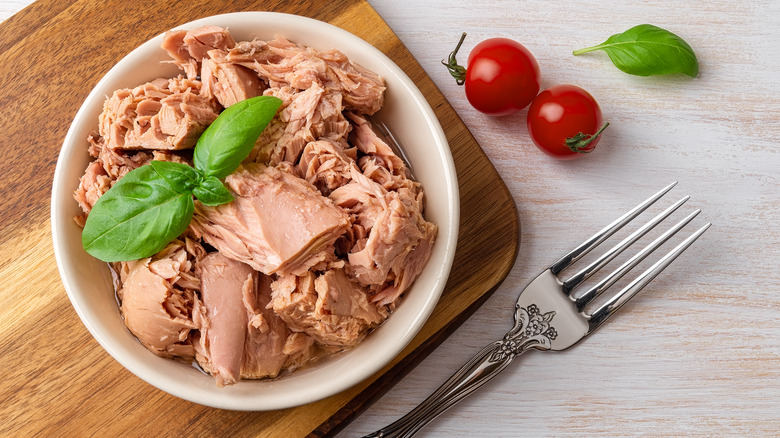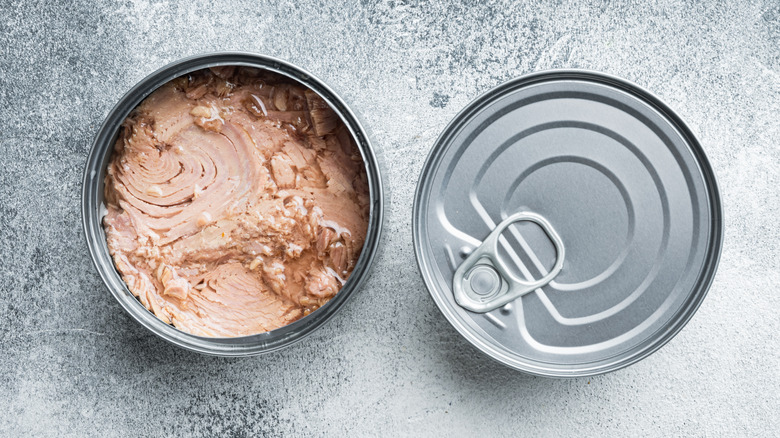New Report Sheds Light On How Much Mercury Is Lurking In Your Canned Tuna
Tuna is a fish that can do it all. It is found in sushi, tuna salad, and even tuna casserole. Fish is a source of protein, containing omega-3 fatty acids, which can help lower risks of heart disease and cancer, according to WebMD. However, eating fish comes with the risk of mercury consumption. That's because mercury, which is a neurotoxin, is found in the ocean, per Consumer Reports. Eating high amounts of mercury can severely impact a person's health and may result in "poor brain function, anxiety, depression, heart disease, and impaired infant development" (via Healthline).
The risk of mercury in tuna led the Food and Drug Administration to update its guidelines on fish consumption in 2017. The FDA recommended pregnant people and children consume a "minimum level" of fish, or in this case up to just 12 ounces. About one-third of Americans eat tuna at least once a month, according to a Consumer Reports survey. However, a recent Consumer Reports investigation has shone new light on mercury levels in several popular canned tuna brands.
Light and skipjack tunas have less mercury
Consumer Reports tested five popular canned tuna brands for mercury and found varying results, including "unpredictable spikes" of mercury in some brands. The tuna brands tested were Bumble Bee, Chicken of the Sea, StarKist, Safe Catch, and Wild Planet. The organization looked at 10 products across these brands, focusing on light and abalone tuna varieties.
What it found was that light and skipjack tuna contain, on average, less mercury than albacore tuna. In fact, albacore products had three times more mercury. However, the organization stresses that individual cans of tuna may contain "much higher levels."
If you're a lover of canned tuna, Consumer Reports recommends limiting eating it to a certain amount per week. The organization advises eating only three 5-ounce cans of light tuna from brands Bumble Bee, Chicken of the Sea, Safe Catch, and StarKist, but only one can of Wild Plant's skipjack variety. If you tend to nosh on abalone, Consumer Reports recommends two 5-ounce cans of tuna from Bumble Bee, but just one 5-ounce can of tuna from Chicken of the Sea, Safe Catch, StarKist, and Wild Planet.
Consumer Reports advises pregnant people to not consume canned tuna during their pregnancy and for young children to limit their consumption of canned tuna to 2 to 8 ounces per week, depending on their age. Adults are recommended a weekly serving of 8 to 12 ounces of canned tuna.

